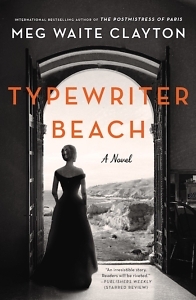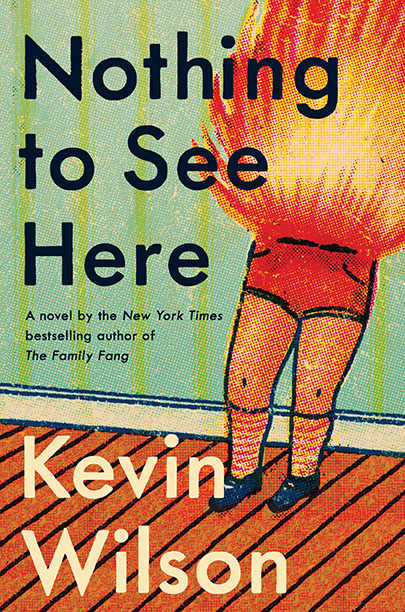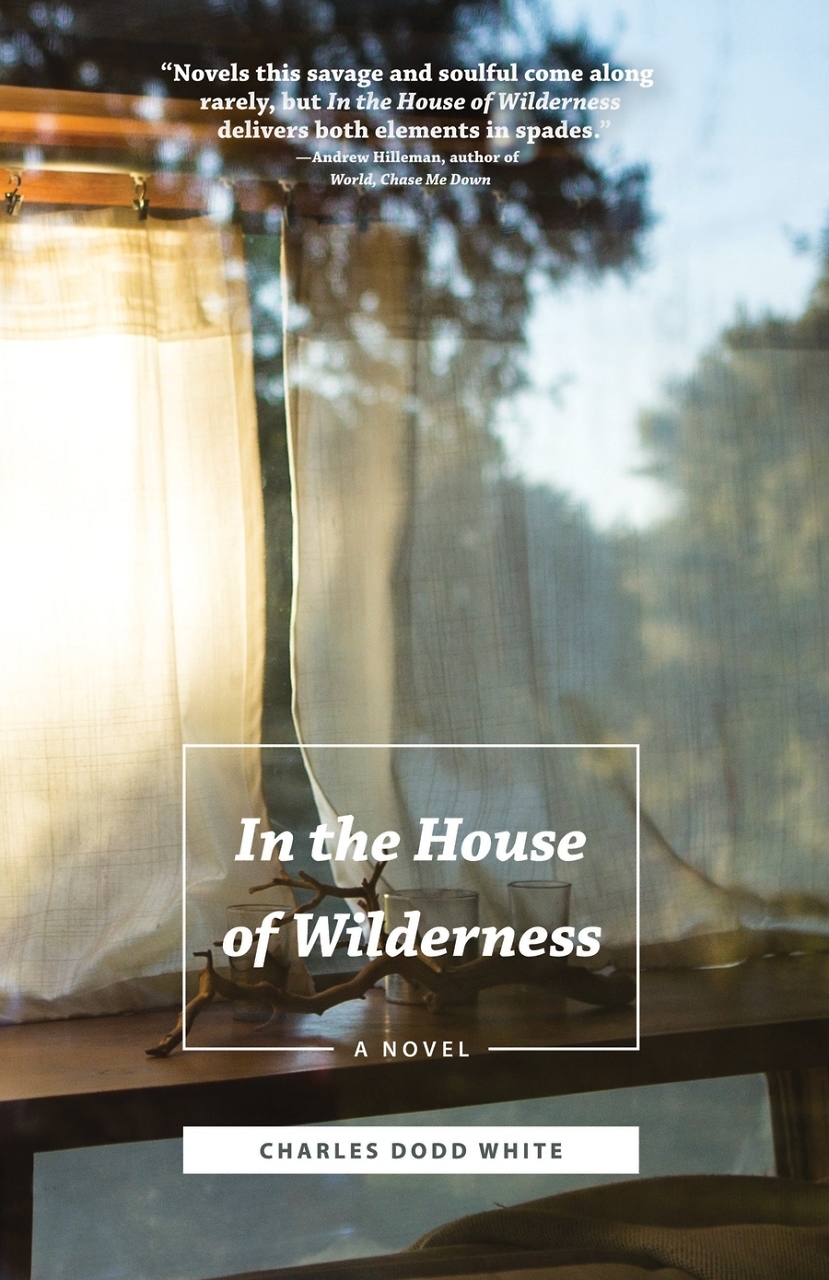So Old Hollywood
Meg Waite Clayton’s latest novel illuminates the dark side of the movie business in the 1950s
A fictionalized version of Alfred Hitchcock appears on the first page of Meg Waite Clayton’s latest novel, setting an appropriately eerie and atmospheric tone. Typewriter Beach revels in the morally gray areas of movies — and of life.

In 1957, a young actress is sent to Carmel-by-the-Sea, an idyllic California beach town, but Isabella Giori’s stay at a spartan cottage is anything but a vacation. Isabella has recently signed a seven-year contract with a Hollywood studio, and Carmel is where executives send their talent to have their problems “fixed.” While Isabella’s specific problem is at first a mystery, her neighbor Léon Chazan is open about his career predicament. He’s been blacklisted for refusing to cooperate with the House Un-American Activities Committee (HUAC).
Clayton paints a chilling portrait of the so-called “Red Scare” in the United States. Under the direction of Senator Joseph McCarthy, public figures suspected of Communist sympathies were subject to prison sentences or unofficial exile from their livelihoods. By highlighting the effects of these witch hunts on one screenwriter, Clayton humanizes a shocking period in U.S. history.
Léon is an Academy Award-winning creator forced to sell his work for dimes on the dollar or let others front for him — i.e., put their names on his screenplays. Clayton masterfully entwines Léon’s imagined story with real-world details and events (including how Hitchcock hired blacklisted actor Norman Lloyd as an associate producer on the television series Alfred Hitchcock Presents). When considering whom he can trust in Hollywood, Léon reflects on how the American public initially disapproved of HUAC: “But the prosecutors pushed on, and the people in the thrall of the red-baiters were far more fanatical than those who weren’t.” It’s hard not to hear echoes of contemporary politics in his insight.
Léon and Isabella are only half of this moving story. In 2018, we meet Léon’s granddaughter Gemma Chazan, an aspiring screenwriter herself. Gemma has arrived in Carmel shortly after her grandfather’s death to clean out his cottage and scatter his ashes in the sea. Having also lost her mother recently, Gemma is understandably adrift. When she meets Isabella Giori — now in her 80s — she never questions the unlikely friendship between her family-oriented grandfather and the famously unmarried screen legend.
 Clayton embraces parallels to current events, making this at once an entertaining and brave work of fiction. While not blacklisted, per se, Gemma has been dropped by her agent after refusing to perform a sexual favor for a television showrunner. She’s been branded with the most damaging adjective a woman in contemporary Hollywood can receive: difficult. Of course, 2018 is also the year of #metoo, and Clayton explores the impact of this movement through Gemma’s growing confidence.
Clayton embraces parallels to current events, making this at once an entertaining and brave work of fiction. While not blacklisted, per se, Gemma has been dropped by her agent after refusing to perform a sexual favor for a television showrunner. She’s been branded with the most damaging adjective a woman in contemporary Hollywood can receive: difficult. Of course, 2018 is also the year of #metoo, and Clayton explores the impact of this movement through Gemma’s growing confidence.
What’s perhaps most impressive about this novel is how it pays homage to cinema without glorifying its creators. Clayton wants readers to understand that there is good entertainment made by bad people. The kind of people who would send hopeful young starlets into the arms of predators. The kind of people who would hire blacklisted writers but make them work for little pay in desolate conditions. The kind of people who would drop their pants in a job interview.
To be fair, there are moments of glamour in Typewriter Beach, and it’s fun to imagine both the young and old Isabella wearing a custom-designed Oscar dress. But Clayton never lets the magic of movies outshine the sordid underbelly of the industry. In some ways, this is a story fueled by secrets. Even the 1957 protagonists, Léon and Isabella, use pseudonyms, hiding something essential about themselves. Not every secret is revealed in the course of the characters’ lives, but readers are left with satisfying explanations for all the undeveloped photographs, shadowy towers, and cryptic hotel meetings.
Clayton is the author of nine books, including the international bestseller The Postmistress of Paris. She has a penchant for writing about characters, particularly formidable women, who don’t quite fit into their historical eras. Some themes transcend time, though, and Typewriter Beach is also a depiction of grief in all its unglamorous manifestations. In one moving scene, Gemma tosses out a sliver of soap used by her grandfather then immediately regrets her decision.
As Léon reflects on his own losses, he considers the historical implications of complacency. All of his immediate family members were sent to concentration camps during World War II, and none survived. He escaped under a false identity, and he doesn’t reveal his birth name to anyone. He understands that “[a] society set free of the bonds of civility to air its grievances devolves into a mob more rapidly than most imagine.” Clayton sounds a timely warning about the importance of standing up for what’s right.
The title Typewriter Beach comes from Léon’s habit of hauling his typewriter to the nearby shore to write. This object holds much more sentimental value for his granddaughter than any leftover toiletry; however, it is not sentimentality but change that Clayton seems to champion in this novel. When Isabella auditions for a role in 2018, she recalls earlier auditions involving various humiliations, including being asked to remove her bra. The contemporary showrunner responds by calling the behavior “so Hollywood” and lamenting that it’s not “so old Hollywood.” That is, inappropriate behavior should be a relic of the past but is not.
This interaction speaks volumes about how much progress is still needed in the movie business — and elsewhere. With Typewriter Beach, Clayton skips the patina often applied to Hollywood in favor of unvarnished reality.

Erica Wright is the author of four crime novels and two poetry collections. Her essay collection Snake was released in 2020, and Hollow Bones was published last year by Severn House. Wright grew up in Wartrace, Tennessee, and now lives in Knoxville.


